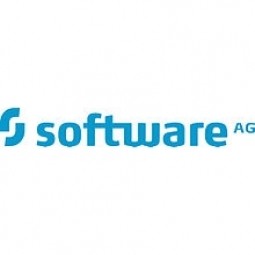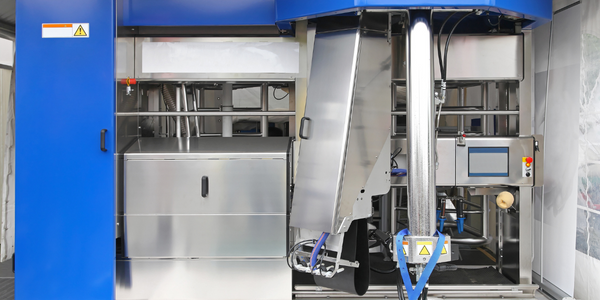下载PDF
Continuously Increasing Service Quality with ARIS Process Performance Manager
技术
- 平台即服务 (PaaS) - 应用开发平台
- 平台即服务 (PaaS) - 数据管理平台
适用功能
- 商业运营
用例
- 过程控制与优化
- 质量预测分析
服务
- 软件设计与工程服务
- 系统集成
挑战
CWS-boco, a specialist in lavatory hygiene, floor mats and textile services, has a clear focus—to always remain the leader in quality and innovation. The corresponding demands on enterprise IT are high. Accurate analysis of processing times are needed for a targeted and rapid increase in the company’s service quality. Estimated times are not enough. In Germany alone, more than 200,000 companies of all sizes and from all industries rely on CWS-boco’s services. A nationwide service network with more than 60 locations, 21 washing and processing plants and more than 600 service vehicles ensures that customer needs are always met throughout the entire service cycle. CWS-boco handles everything from order taking, delivery and all cleaning and repair steps to pick up and exchange of equipment, clothing and consumables.
关于客户
CWS-boco Germany GmbH is a subsidiary of CWS-boco International GmbH, a wholly owned subsidiary of Duisburg Franz Haniel & Cie. GmbH. In fiscal year 2011, CWS-boco International generated total revenue of €748 million. CWS-boco Germany employs about 3,800 staff members from 43 countries. The company is headquartered in Dreieich, Hessen. CWS-boco is a specialist in lavatory hygiene, floor mats and textile services. The company has a clear corporate strategy: “We want to help our customers with their needs. Our rental service allows our clients to outsource all their processes related to work clothes, lavatory hygiene and mats. This eliminates inventory costs, keeps premises smaller, lowers incidental costs, and means that parts subject to wear and tear do not need to be replaced. All this reduces costs and minimizes sources of error.”
解决方案
CWS-boco relies on SAP and—for modeling and documentation of the business processes—ARIS. This combination has proven itself over time and enabled the company to meet high-quality standards and make continuous process improvements. Implementation of ARIS PPM at CWS-boco took only three months. The solution allows CWS-boco to measure and analyze completed processes within its SAP environments, identify optimization potential and transfer the information to its ARIS-based business process modeling system. ARIS PPM controls several thousand process instances. The regional service managers receive weekly reports, which include graphics on the measurement results for each location and product group. The reports are forwarded to them via a mail server. Furthermore, the data needed for particularly important processes can be accessed at the touch of a button from a predefined list of favorites.
运营影响
数量效益
相关案例.

Case Study
System 800xA at Indian Cement Plants
Chettinad Cement recognized that further efficiencies could be achieved in its cement manufacturing process. It looked to investing in comprehensive operational and control technologies to manage and derive productivity and energy efficiency gains from the assets on Line 2, their second plant in India.

Case Study
Airbus Soars with Wearable Technology
Building an Airbus aircraft involves complex manufacturing processes consisting of thousands of moving parts. Speed and accuracy are critical to business and competitive advantage. Improvements in both would have high impact on Airbus’ bottom line. Airbus wanted to help operators reduce the complexity of assembling cabin seats and decrease the time required to complete this task.

Case Study
Improving Production Line Efficiency with Ethernet Micro RTU Controller
Moxa was asked to provide a connectivity solution for one of the world's leading cosmetics companies. This multinational corporation, with retail presence in 130 countries, 23 global braches, and over 66,000 employees, sought to improve the efficiency of their production process by migrating from manual monitoring to an automatic productivity monitoring system. The production line was being monitored by ABB Real-TPI, a factory information system that offers data collection and analysis to improve plant efficiency. Due to software limitations, the customer needed an OPC server and a corresponding I/O solution to collect data from additional sensor devices for the Real-TPI system. The goal is to enable the factory information system to more thoroughly collect data from every corner of the production line. This will improve its ability to measure Overall Equipment Effectiveness (OEE) and translate into increased production efficiencies. System Requirements • Instant status updates while still consuming minimal bandwidth to relieve strain on limited factory networks • Interoperable with ABB Real-TPI • Small form factor appropriate for deployment where space is scarce • Remote software management and configuration to simplify operations

Case Study
Developing Smart Tools for the Airbus Factory
Manufacturing and assembly of aircraft, which involves tens of thousands of steps that must be followed by the operators, and a single mistake in the process could cost hundreds of thousands of dollars to fix, makes the room for error very small.







